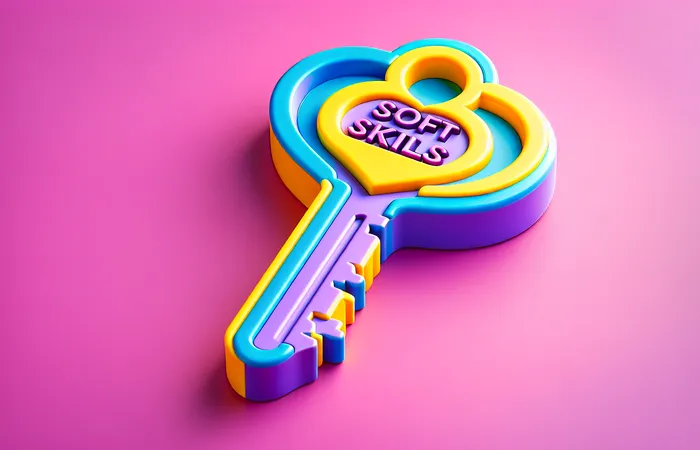Soft Skills as Key Drivers for Career Development

In today's evolving job market, soft skills are more vital than ever for career advancement. Understanding their significance and developing these indispensable skills can transform your professional trajectory.
The Essentiality of Soft Skills in the Modern Workplace
In recent years, the workplace has experienced a seismic shift. With the rise of automation and technological innovation, the demand for soft skills has skyrocketed. Unlike technical abilities, soft skills—such as communication, empathy, and teamwork—are uniquely human traits that machines can't replicate.
Employers increasingly prioritize candidates who demonstrate strong soft skills alongside their technical expertise. In fact, studies reveal that, by 2030, two-thirds of all jobs will demand highly human skills. Consequently, honing your soft skills isn't just beneficial—it's necessary for long-term career development.
Understanding the Pillars: Key Soft Skills
- Communication: Effective communication is the cornerstone of any successful career. It involves not only speaking and listening but also writing, presenting, and the ability to tailor messages to different audiences. Good communicators can navigate complex interpersonal dynamics and clarify their ideas with ease.
- Teamwork and Collaboration: The ability to work well with others is critical in today's interconnected workplace. Team players who can collaborate across departments bring diverse perspectives and drive innovation. They foster an environment of mutual respect and support, punctuated by open dialogue.
- Problem-solving and Critical Thinking: Employers look for individuals who can approach problems with creativity and a solution-oriented mindset. Critical thinkers analyze information objectively, which allows them to devise effective, sustainable solutions.
- Emotional Intelligence: EQ (Emotional Intelligence) plays a crucial role in understanding and managing one's emotions and those of others. High EQ individuals foster strong relationships, manage conflicts seamlessly, and exhibit leadership.
- Adaptability: In a world where change is constant, adaptability is key. Professionals who can pivot quickly and embrace new challenges retain a competitive edge. Adaptability involves openness to change and flexibility in thought and action.
The Role of Soft Skills in Career Development
Soft skills enhance career development by building a solid foundation of interpersonal and emotional capabilities that complement your technical knowledge. Here’s how investing in soft skills can propel your career forward:
- Increased Employability: A well-rounded skill set makes you more attractive to potential employers. Companies seek employees who can effectively blend hard skills with interpersonal skills to contribute positively to company culture and objectives.
- Advancement Opportunities: As professionals climb the corporate ladder, the role of soft skills magnifies. Leadership positions, for example, demand high levels of communication, empathy, and decision-making skills.
- Networking and Relationship Building: Effective networking hinges on your ability to relate to others. Soft skills enable you to establish meaningful connections, provide support to colleagues, and elevate your professional profile in industry circles.
- Enhanced Team Performance: When individuals in a team exhibit strong communication and collaboration skills, overall team performance surges. Teams that deliver results efficiently are critical in achieving organizational goals and gaining recognition.
Developing Soft Skills for Success
Understanding the importance of soft skills is one thing; developing them is another. Platforms like Skill5 provide opportunities for individuals to cultivate these skills through expertly designed, AI-powered training solutions.
For those seeking structured learning paths, the Skill5 Academy offers micro-courses focused on enhancing soft skills, tailored to fit various professional settings and objectives.
Practical Tips for Improving Soft Skills:
- Practice Active Listening: Engage in conversations with an intent to listen and understand. This involves paying attention, asking clarifying questions, and providing feedback when necessary.
- Seek Feedback: Constructive feedback is invaluable for growth. Ask colleagues and mentors for insights into your soft skill performance and areas for improvement.
- Participate in Workshops and Seminars: Many organizations offer resources for continuous learning. Participating in workshops can provide practical exposure and new perspectives on how to apply these skills effectively.
- Self-reflection: Regularly assess your interactions and reflect on your emotional responses. Understanding your strengths and weaknesses helps in fine-tuning your approach to various situations.
The Future of Work: Soft Skills as Indispensable Assets
As the future of work continues to evolve, soft skills will only become more critical. Companies seeking resilience in a fast-paced market are shifting focus towards these human-centric competencies. For professionals, developing a robust soft skill set is an intelligent investment to navigate the dynamics of modern workplaces adeptly.
The path to career success is paved with a commitment to lifelong learning and adaptation. Embrace the power of soft skills and position yourself at the forefront of your professional journey. With platforms like Skill5, you have the tools at your fingertips to embark on this transformative journey and harness these skills for meaningful career progression.
In conclusion, soft skills are not just complementary to hard skills—they are the very foundation upon which career development rests. As traditional workplaces give way to more collaborative, flexible environments, those who excel in interpersonal and emotional intelligence will lead the charge into the future. By prioritizing soft skills, you are not only building a career today but paving the way for tomorrow's opportunities.



